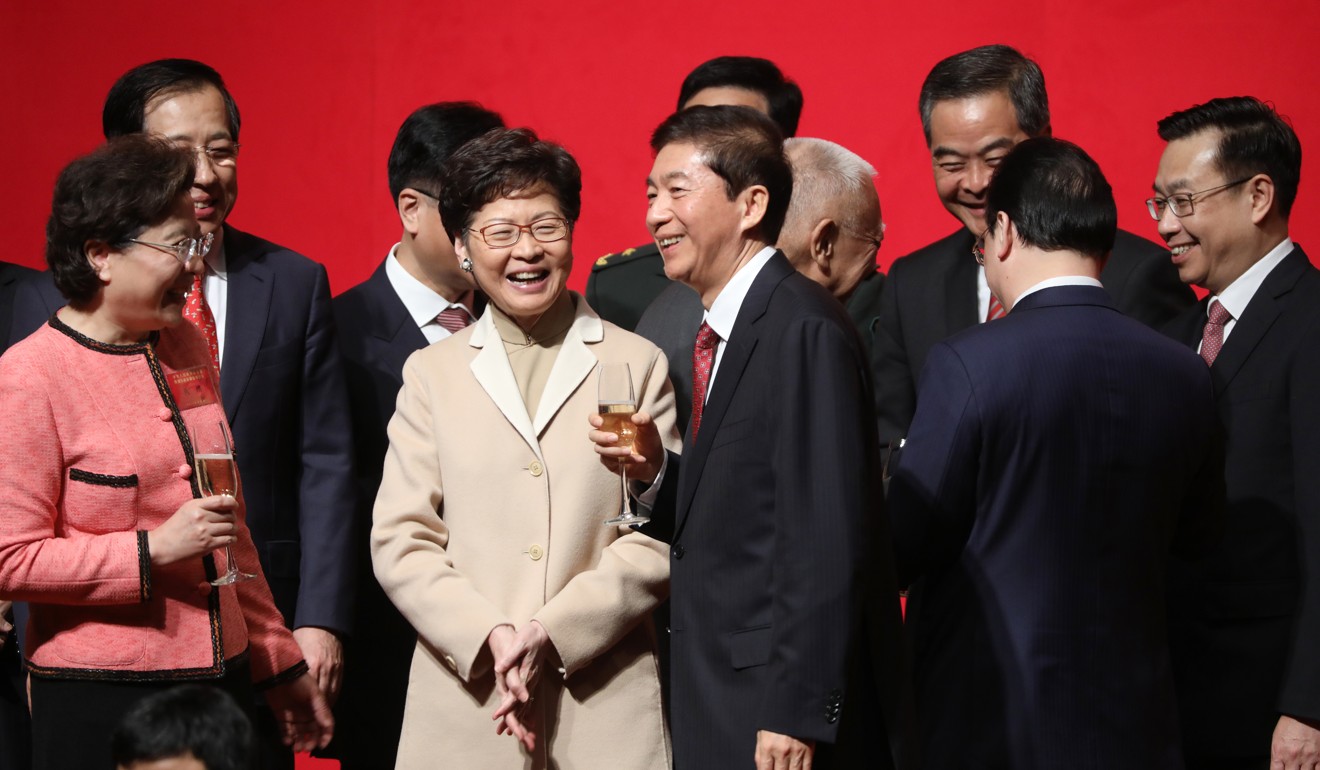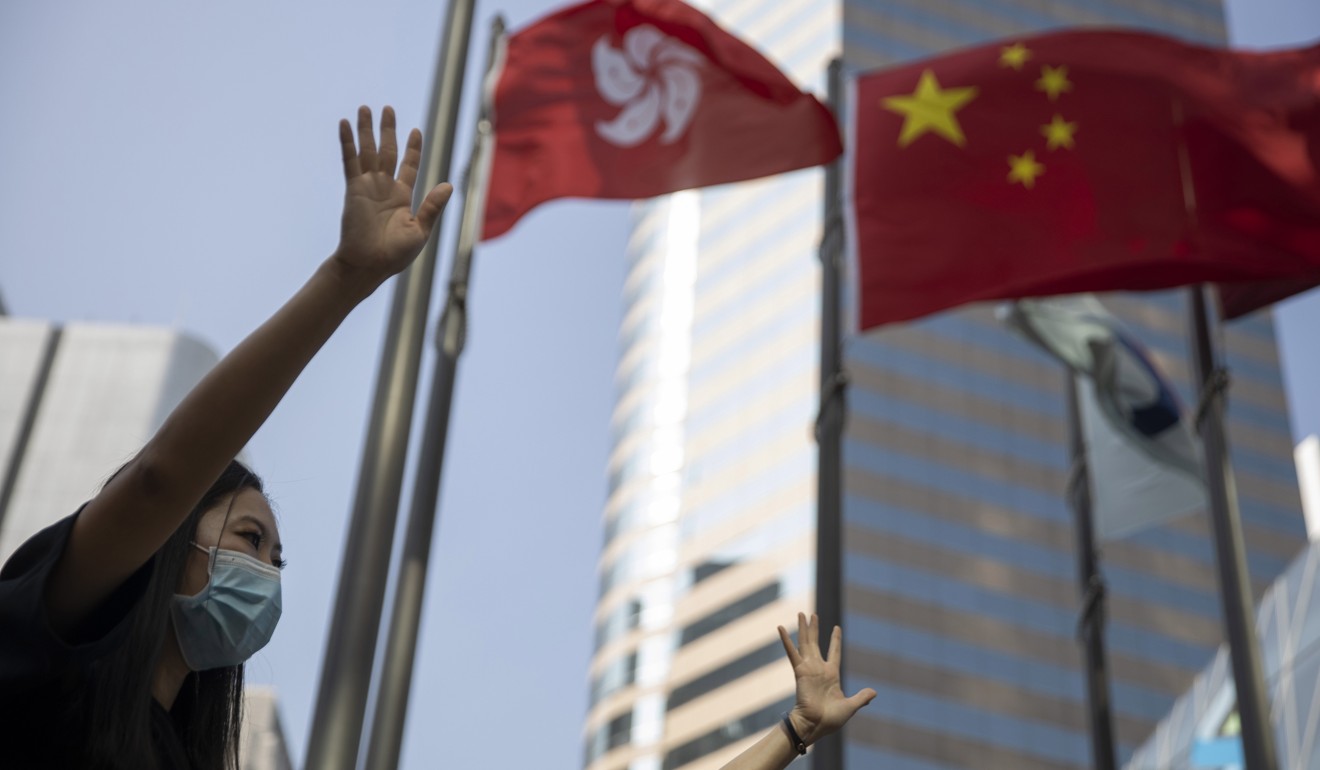
Beijing’s new man in Hong Kong must succeed where others have failed in explaining the city to his Communist Party bosses
- Neither economic sweeteners nor aggressive patriotic education will allay Hongkongers’ deep-seated fears about the system on the mainland
- Bejing needs a new approach. It could start with a discussion of the fate of ‘one country, two systems’ after 2047 and revamping its ‘united front’ strategy

Does Beijing understand Hong Kong? This has been a perennial question from the perspective of Hongkongers. Even those trusted by Beijing – the city’s deputies to the National People’s Congress and Chinese People’s Political Consultative Conference –have lamented that they didn’t feel Beijing understood Hong Kong sufficiently.
The new director of the central government’s liaison office in Hong Kong has an opportunity to keep an open mind. Luo Huining, the former Communist Party secretary of Shanxi province, is a senior party and government official with substantial political and administrative experience on the mainland.
However, the decision to send him to Hong Kong was not only a surprise to the city but also unexpected within the mainland hierarchy, as his professional background had neither focused on Hong Kong-Macau matters nor foreign affairs.
Hong Kong doesn’t know yet whether Luo has the capacity to absorb the complexities of a very different system and a society underpinned by characteristics and conditions that run counter to those on the mainland.

Nevertheless, he must be a trusted and capable official, who is expected to troubleshoot, especially after Hong Kong’s annus horribilis last year, when the city experienced over six months of protests, ignited by the now-withdrawn extradition bill that would have allowed case-by-case renditions of alleged fugitive offenders from Hong Kong to the mainland, Macau and Taiwan.
Even with safeguards and exemptions – which the government had failed to explain adequately – the bill stirred up people’s deepest fears about the mainland, which they know is not predicated on the rule of law rooted in the liberal tradition. Hongkongers view mainland justice as being stacked against the accused and fear Beijing wants to reduce their liberties.
How might Luo explain this instinctive anxiety to the central leadership, which lies at the core of today’s troubles?
Beijing sees Hong Kong’s problem through two main lenses – there are socioeconomic inequalities that the local authorities have to fix and external forces arousing discontent, which is a broader geopolitical issue. While the mainland’s concerns cannot be dismissed, how they are understood by the national leaders and what they see to be solutions are important to people in Hong Kong.
How Beijing communicates its views to Hong Kong makes all the difference. China’s leaders must understand that the cushion separating “one country” from “two systems” is still very much needed because Hongkongers truly treasure their personal liberties.
It isn’t the case that, with more economic sweeteners and palliatives, they would be willing to give up their rights. Indeed, the continuing protests have shown that people are even willing to accept a high degree of disruption to get their message across.
As for foreign interference, people in Hong Kong, a former British colony and an international city, are used to seeking external, mainly Western, contributions of all kinds. Many types of overseas organisations have long histories and many contacts in Hong Kong.
What Hongkongers are unused to is demonstrating patriotism and looking to the mainland for direction. The British colonialists were smart enough not to demand overt demonstrations of allegiance, and with the mainland operating a socialist system, capitalistic Hong Kong rarely looked at mainland practices in the past.
How might Luo explain Hong Kong to Beijing? Yes, Beijing is frustrated that, after more than 20 years, people are still distrustful of the mainland despite its many advances in so many areas. Also, Hong Kong is fertile ground for the emerging competitive tug-of-war between the United States and China.
The question is how China is going to deal with Hong Kong. Beijing’s rhetoric has so far focused on changing Hongkongers, such as through instilling patriotism through the education system or enticing them to participate in the huge Chinese market for jobs and investment.
These approaches are not working because they don’t address the deep-seated unease Hongkongers feel towards the system on the mainland. It is also why some people have urged Beijing to tell Hong Kong it will extend “one country, two systems” for another longish period of time beyond 2047 in the hope that opening this line of discussion in a sensitive manner might enable Beijing and Hong Kong to have a constructive dialogue.
Meanwhile, Hongkongers also need to reconcile themselves to being part of China and see that the central authorities have valid concerns about national security.

Who will Luo seek views from? In the past, mainland officials engaged with tycoons because it was assumed that they run the economy and they connected with others as part of their “united front” strategy to bring professionals and people from the grass-roots communities onside.
Yes, tycoons control many businesses but they can no longer be called upon to get people to abandon what they see as their values and beliefs. The united front needs a total overhaul, too. Luo needs to dispassionately assess the results of the strategy so far.
The challenge is that abandoning long-standing methods is such a high risk for mainland officials that sticking to the same tired rhetoric and failed methods is politically safe.
Let’s hope the central authorities have given Luo the backing to do what it takes to solve problems in a pragmatic manner and give Hong Kong a chance to show that they do not support crossing the red line of separatism.
Christine Loh, a former undersecretary for the environment, is an adjunct professor at Hong Kong University of Science and Technology